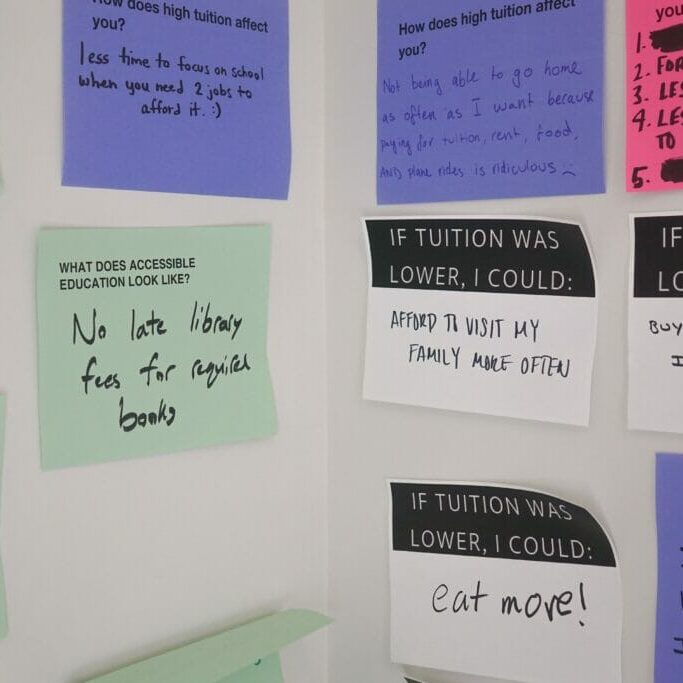
Dalhousie increases tuition by three per cent
Less university, more tuition
In the midst of a pandemic that’s resulted in the suspension of most in-person classes and a spike in unemployment rates, Dalhousie University has decided to increase the cost of tuition.
For students who couldn’t earn money over the summer for the upcoming school year, or others who were unable to travel home to be with their families, raising tuition this fall will give gatekeeping a whole new meaning.
“I think a lot of students are feeling cheated and exploited when they’re paying the same or increasing amounts for an online education without the other elements of the post-secondary experience that are equally important,” said Levi Clarkson, president of the King’s Students’ Union (KSU) at the University of King’s College.
Dalhousie’s Board of Governors decided in May to increase tuition by three per cent for the 2020-2021 school year. In an email to students, Dal President Deep Saini explained the increase as necessary to “maintain the high quality of our academic programming.”
King’s students are paying more this school year too. The journalism school’s tuition is increasing by one per cent and the Foundation Year Program (FYP) tuition is increasing by three.
Many students aren’t on board. Some are taking a gap year. Others are reducing their course loads and struggling to find work after previously relying on campus employment for income.
Why tuition’s going up
According to Bonnie Sands, a bursar at King’s, both universities have undertaken additional costs to prepare for the fall semester.
“It sounds counterintuitive, but to go online, there are quite a few costs that we’re incurring to be able to offer quality programming that students are used to receiving,” Sands said.
Technology played a central role in King’s spending. They paid to enhance the audio quality for streaming from Alumni Hall, as well as dedicated funding to provide mobile production kits for journalism students that include a tripod and a wireless mic set, which students regularly borrow from the school.
King’s hired at least three additional senior fellows to accommodate the smaller tutorial sizes they’ll be having.
“Those positions are two-to-three-year positions so even though it might be a one-year issue, it’s going to affect our cost down the road for multiple years,” Sands said.
The expected decrease in student enrolment will have a similar long-term impact on King’s bottom line, resulting in a loss of revenue over the next four years.
How students are affected
The fall semester coincides with the end of the Canadian Emergency Response Benefit (CERB), when many people will be cut back to Employment Insurance (EI) benefits – benefits full-time students are ineligible to receive. Students who didn’t qualify for the CERB or EI had the option of applying for the Canadian Emergency Student Benefit (CESB), worth $1,250 a month, which also ends at the end of September.
International students, who were ineligible to qualify for CERB, are facing the bulk of the tuition increase, receiving a $1,473 spike in tuition, the second increase of more than $1,000 in the past two years. These increases are slated to continue until at least the 2022-2023 school year.
“Some international students are back in their home countries,” said Erica Seelemann, vice president (academic and external) of the Dalhousie Student Union (DSU). “They aren’t going to be able to learn remotely properly. They also don’t have the funds to pay for tuition, but if they don’t continue, if they take a year off, they get immediately hit with their student loans, so they’re very much stuck between a rock and a hard place.”
Clarkson shares this sentiment.
“International students have the least amount of access to services and supports on and off-campus, and yet they’re treated like cash cows so universities can run themselves like businesses,” Clarkson said.
Student unions fight the tuition increase
The KSU sent out surveys to King’s students to get their feedback on how the pandemic has affected their finances and to garner their thoughts on virtual learning. The surveys were filled out by 110 students – roughly 10 per cent of the King’s student body.
“In one of our surveys regarding the transition to online learning, we found that students would miss things like face-to-face interaction with peers and professors, as well as access to study spaces,” Clarkson said. “When asked about their enrolment plans for the upcoming year, over 65 per cent of [surveyed] students said they would take reduced course loads or completely defer.”
Nearly 80 per cent of King’s students surveyed said they were more likely to enrol in virtual learning if the cost of tuition decreased.
Clarkson believes Bill Lahey, president of King’s, should be advocating for more government funding for students and universities in his role as chair of the Council of Nova Scotia University Presidents.
Some campus jobs, such as conference services and hospitality positions at campus bars, won’t exist in a virtual setting this school year. Over the summer, King’s implemented several internship and fellowship opportunities for students.
Seelemann lobbied the Dalhousie Board of Directors to lower tuition rates, but feels the DSU’s efforts “were largely ignored.”
“We think if there’s any year to not increase tuition, it would be this year. We understand they have a four-year plan to increase tuition every year by three per cent, but again, the entire world has had to adapt to this pandemic,” Seelemann said. “It doesn’t seem like the right decision to follow through with a plan that continues to harm students that are very much being harmed by the current situation.”
The Dal administration budgeted additional bursaries for students struggling to keep up with the cost of education during the pandemic. Bursary applications are available on the university’s website.






